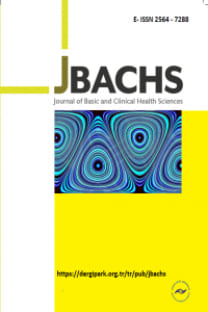Tolga Sever, Yasemin Basbinar, Gizem Calibasi-Kocal, Cagri Cakici, Feriha Toksoz, Seniz Inanc-Surer, Turkan Yigitbasi
Targeting the tumor metabolism by oxamate potentiates the impact of chemotherapeutics in colorectal cancer cells
Background/Aim: Cancer cells promote lactate formation via pyruvate rather than oxidative phosphorylation by programming their metabolism to maintain proliferation under the Warburg effect. It has shown that the altered metabolic phenotype with activation of lactate dehydrogenase-A in the cancer cell may affect survival, chemotherapy resistance, and metastasis. In this direction, studies are focusing on reprogramming cancer metabolism and increase the effectiveness of chemotherapy. In this study, the main aim was to target the Warburg phenotype via the inhibition of lactate dehydrogenase with the combination of sodium oxamate and current colorectal cancer treatment options such as 5-fluorouracil and irinotecan.
Methods: The effect of chemotherapeutics on the cellular behaviour was evaluated by real-time cytotoxicity and migration analysis systems, and metabolic phenotype was assessed by measuring lactate, lactate dehydrogenase expression, and reactive oxygen species levels.
Results: According to the results, the viability and migration of colorectal cancer cells were significantly decreased with the combination of chemotherapeutics and sodium oxamate which decreases lactate levels.
Conclusion: As a result, the combination of sodium oxamate with the chemotherapeutics hinders the cancer cell viability and migration by changing metabolic phenotype with decreased lactate.
Keywords:
Colorectal cancer, tumor metabolism, lactate, sodium oxamate, Warburg effect,
___
- Persidis A. Cancer multidrug resistance. Nat Biotechnol 1999; 17(1); 94-5.
- Crawford S. Is it time for a new paradigm for systemic cancer treatment? Lessons from a century of cancer chemotherapy. Front Pharmacol. 2013; 4: 68.
- Galluzzi L, Kepp O, Vander Heiden MG, et al. Metabolic targets for cancer therapy. Nat Rev Drug Discov 2013; 12(11): 829-46.
- Schwartz L, Supuran CT, Alfarouk KO. The Warburg Effect and the Hallmarks of Cancer. Anticancer Agents Med Chem 2017; 17(2); 164-70.
- Vander Heiden MG, Cantley LC, Thompson CB. Understanding the Warburg effect: the metabolic requirements of cell proliferation. Science 2009; 324(5930): 1029-33.
- Doherty JR, Cleveland JL. Targeting lactate metabolism for cancer therapeutics. J Clin Invest 2013; 123(9): 3685-92.
- Ward PS, Thompson CB. Metabolic reprogramming: a cancer hallmark even warburg did not anticipate. Cancer Cell 2012; 21(3): 297-308.
- Zhao Z, Han F, Yang S, et al. Oxamate-mediated inhibition of lactate dehydrogenase induces protective autophagy in gastric cancer cells: involvement of the Akt-mTOR signaling pathway. Cancer Lett 2015; 358(1): 17-26.
- Seliger C, Leukel P, Moeckel S, et al. Lactate-modulated induction of THBS-1 activates transforming growth factor (TGF)-beta2 and migration of glioma cells in vitro. PLoS One 2013; 8(11): e78935.
- Liu X, Yang Z, Chen Z, et al. Effects of the suppression of lactate dehydrogenase A on the growth and invasion of human gastric cancer cells. Oncol Rep 2015; 33(1): 157-62.
- Zhai X, Yang Y, Wan J, et al. Inhibition of LDH-A by oxamate induces G2/M arrest, apoptosis and increases radiosensitivity in nasopharyngeal carcinoma cells. Oncol Rep 2013; 30(6): 2983-91.
- Yang Y, Su D, Zhao L, et al. Different effects of LDH-A inhibition by oxamate in non-small cell lung cancer cells. Oncotarget 2014; 5(23): 11886-96.
- Fiume L, Manerba M, Vettraino M, et al. Impairment of aerobic glycolysis by inhibitors of lactic dehydrogenase hinders the growth of human hepatocellular carcinoma cell lines. Pharmacology 2010; 86(3): 157-62.
- Zhou M, Zhao Y, Ding Y, et al. Warburg effect in chemosensitivity: targeting lactate dehydrogenase-A re-sensitizes taxol-resistant cancer cells to taxol. Mol Cancer 2010; 9: 33.
- Hutton JE, Wang X, Zimmerman LJ, et al. Oncogenic KRAS and BRAF Drive Metabolic Reprogramming in Colorectal Cancer. Mol Cell Proteomics 2016; 15(9): 2924-38.
- Lundberg IV, Wikberg ML, Ljuslinder I, Li X, Myte R, et al. MicroRNA Expression in KRAS- and BRAF-mutated Colorectal Cancers. Anticancer Res 2018; 38(2): 677-83.
- Sagaert X, Vanstapel A, Verbeek S. Tumor Heterogeneity in Colorectal Cancer: What Do We Know So Far? Pathobiology 2018; 85(1-2): 72-84
- Arseneault R, Chien A, Newington JT, et al. Attenuation of LDHA expression in cancer cells leads to redox-dependent alterations in cytoskeletal structure and cell migration. Cancer Lett 2013; 338(2): 255-66.
- Jiang F, Ma S, Xue Y, et al. LDH-A promotes malignant progression via activation of epithelial-to-mesenchymal transition and conferring stemness in muscle-invasive bladder cancer. Biochem Biophys Res Commun 2016; 469(4): 985-92.
- Yayın Aralığı: Yılda 3 Sayı
- Başlangıç: 2016
- Yayıncı: DOKUZ EYLÜL ÜNİVERSİTESİ
Sayıdaki Diğer Makaleler
Burcu Eser, Sermet Sezigen, Tughan Duran, Osman Karakus, Tuncer Degim, Canan Uluoglu
Medet Korkmaz, Esin Cetinkaya Uslusoy, Melda Tezcan
Yasemin AYHAN ÖNCÜ, Şeyda SEREN İNTEPELER, Selmin ŞENOL, Canan DEMİR BARUTCU
Elif Ozyurt, Keziban Avci, Figen Cizmeci Senel
Mehmet Ali Ozcan, Gulen Gul, Sermin Ozkal
Esin USLUSOY, Melda TEZCAN, Medet KORKMAZ
Tolga Sever, Yasemin Basbinar, Gizem Calibasi-Kocal, Cagri Cakici, Feriha Toksoz, Seniz Inanc-Surer, Turkan Yigitbasi
Gürsoy PALA, Mehmet OZEREN, Alkim Gulsah SAHINGOZ YILDIRIM, Baris SEVER, Hakan GOLBASI, Ibrahim OMEROGLU, Zubeyde Emiralioglu CAKIR, Mehmet OZER, Ceren GOLBASI, Atalay EKIN
